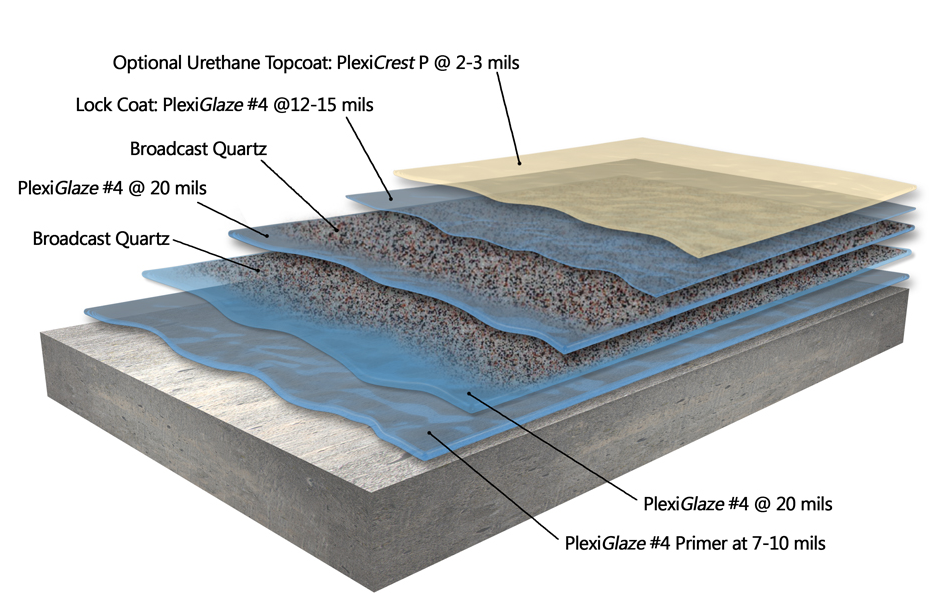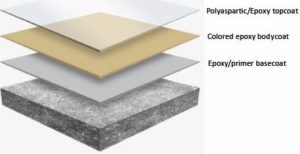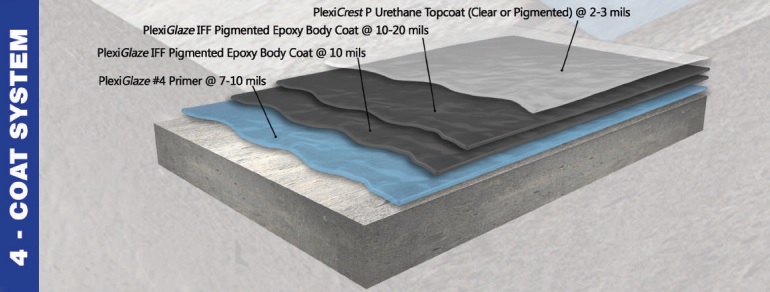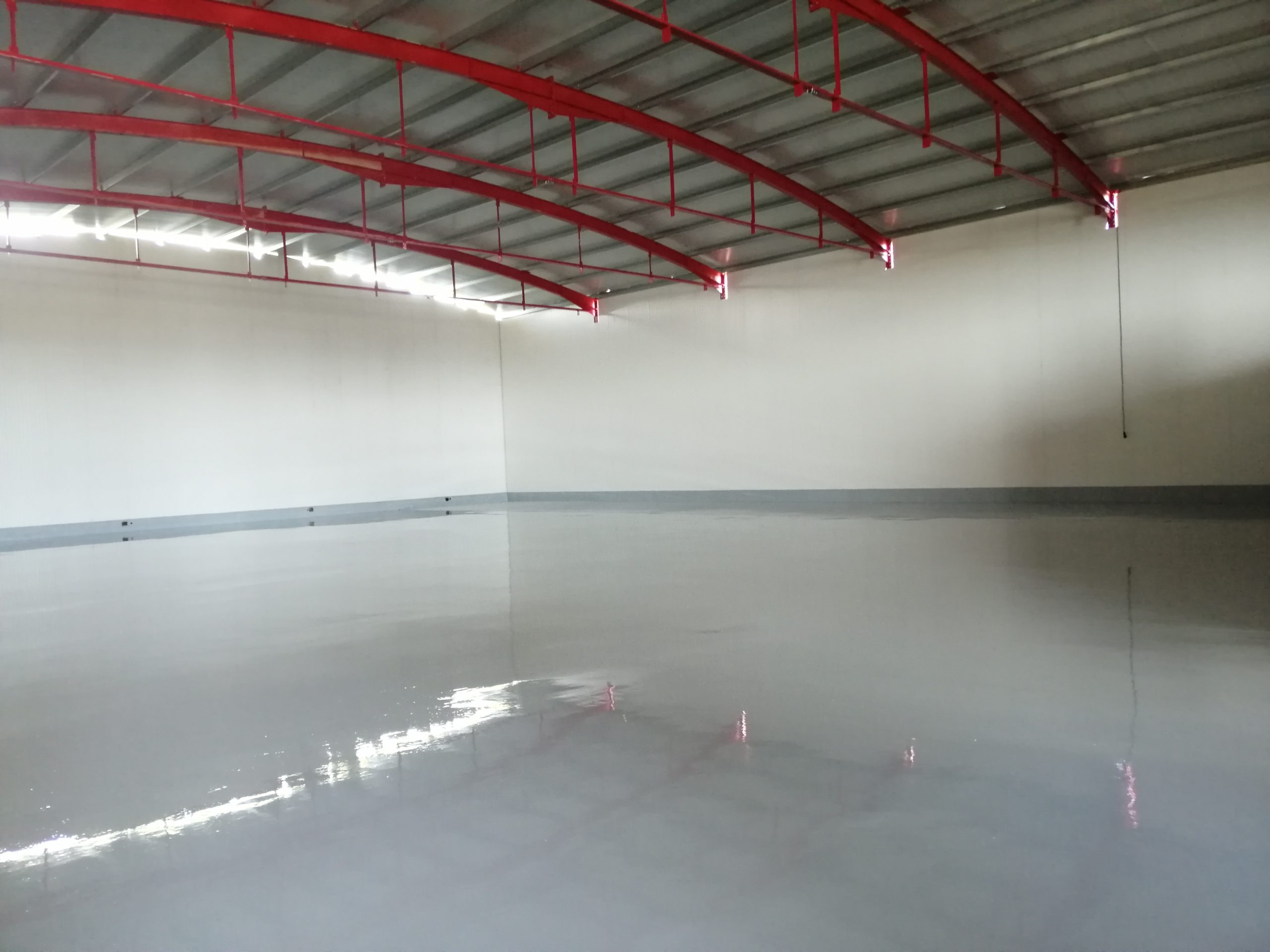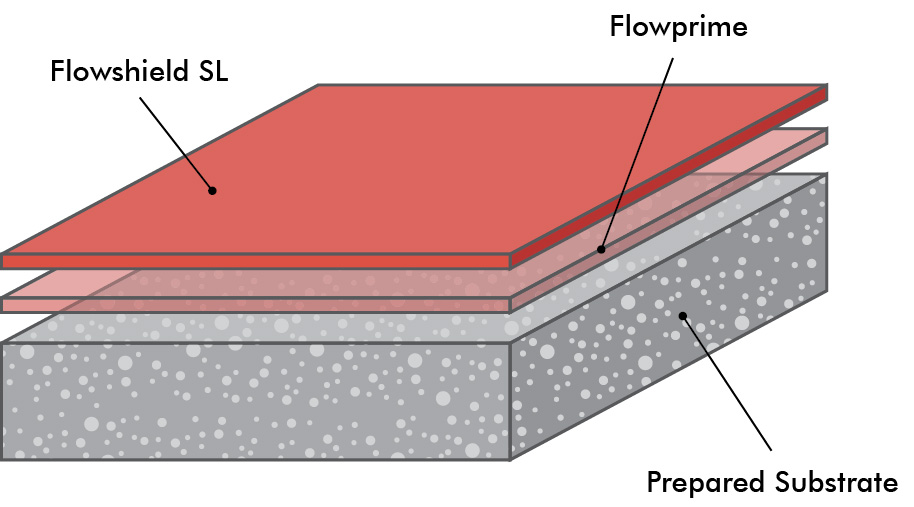The Importance of Epoxy Flooring Thickness
Epoxy flooring is popular in many industrial and commercial settings due to its durability, versatility, and aesthetic appeal. One crucial aspect to consider when installing epoxy flooring is the thickness of the epoxy coating. Let’s explore the importance of epoxy flooring thickness and its benefits.
- Enhanced Durability and Impact Resistance: A thicker epoxy flooring coating provides increased durability and impact resistance. The thickness of the coating determines its ability to withstand heavy foot traffic, machinery, and other potential stressors. A thicker epoxy layer can absorb impact and prevent damage to the underlying concrete substrate, ensuring a longer lifespan for your flooring.
- Improved Chemical Resistance: Epoxy flooring is known for its resistance to chemicals, making it an excellent choice for industries dealing with corrosive substances. The thickness of the epoxy coating plays a crucial role in determining its chemical resistance. A thicker coating provides a stronger barrier, protecting the underlying concrete from chemical spills and preventing damage to the flooring system.
- Enhanced Abrasion Resistance: High-traffic areas are prone to wear and tear, which can compromise the appearance and functionality of the flooring. A thicker epoxy coating offers improved abrasion resistance, making it more resistant to scratches, scuffs, and general wear caused by heavy machinery and foot traffic. This ensures that your flooring maintains its aesthetic appeal and functionality over time.
- Temperature and Moisture Resistance: Epoxy flooring thickness also affects its ability to withstand temperature fluctuations and moisture exposure. A thicker coating provides better insulation against extreme temperatures, preventing cracking or delamination of the flooring. Moreover, a thicker epoxy layer acts as a moisture barrier, preventing water penetration and minimizing the risk of mold or mildew growth.
- Design Possibilities and Aesthetic Appeal: Thicker epoxy coatings offer more design possibilities and customization options. With a thicker coating, you can incorporate various decorative elements such as flakes and metallic pigments or create unique patterns. Additionally, the depth and glossiness of the epoxy coating are enhanced with increased thickness, resulting in a visually stunning and professional-looking flooring system.
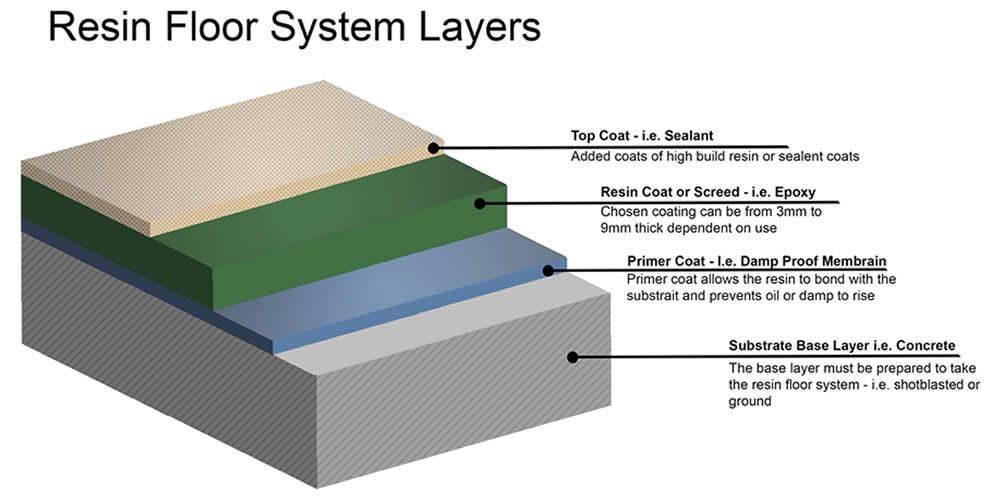
Choosing the Right Epoxy Flooring Thickness for Your Needs
When it comes to choosing the right epoxy flooring thickness, there are several factors to consider. Each project has unique requirements, and understanding these factors will help you make an informed decision. Below are the key factors to consider when selecting the appropriate epoxy flooring thickness for your needs.
Expected Foot Traffic: The amount and type of foot traffic your epoxy flooring will experience is a critical factor in determining the appropriate thickness. High-traffic areas, such as warehouses or manufacturing facilities, require thicker coatings to withstand heavy machinery and frequent movement. On the other hand, low-traffic areas, such as residential garages, may require a thinner coating.
Purpose of the Flooring: Identifying the purpose of the epoxy flooring is essential in determining the appropriate thickness. If the flooring is subjected to chemical spills or corrosive substances, a thicker coating with enhanced chemical resistance is necessary. For decorative purposes or light-duty areas, a thinner coating may suffice.
Substrate Condition: The condition of the underlying concrete substrate is another factor to consider when selecting epoxy flooring thickness. If the concrete is uneven or has cracks or other imperfections, a thicker coating can help level the surface and provide better protection. Thinner coatings may not be suitable for heavily damaged or uneven substrates.
Budget and Time Constraints: Budget and time constraints are practical considerations when choosing epoxy flooring thickness. Thicker coatings generally require more material and labor, resulting in higher costs. Additionally, thicker coatings may require longer curing times, which can impact project timelines. It is crucial to find a balance between the desired thickness and available resources.
Future Maintenance and Upkeep: Consider the long-term maintenance and upkeep requirements of the epoxy flooring when selecting the appropriate thickness. Thicker coatings may require less frequent maintenance and provide better resistance against wear and tear. Thinner coatings, while more cost-effective initially, may require more frequent touch-ups or recoating down the line.
Pros and Cons of Different Epoxy Flooring Thicknesses
When it comes to epoxy flooring, there is a choice between thicker and thinner coatings. Both options have their own set of advantages and disadvantages. Let’s discuss the pros and cons of different epoxy flooring thicknesses to help you make an informed decision for your project.
Pros of Thick Epoxy Flooring:
- Enhanced durability and impact resistance.
- Improved chemical resistance.
- Better abrasion resistance.
- Increased temperature and moisture resistance.
- More design possibilities and aesthetic appeal.
Cons of Thick Epoxy Flooring:
- Higher material and labor costs.
- Longer curing times.
- Requires a well-prepared substrate.
- Challenging to apply in tight spaces.
- May not be necessary for low-traffic areas.
Pros of Thin Epoxy Flooring:
- Lower material and labor costs.
- Quicker curing times.
- Suitable for light-duty areas.
- Can be applied over existing flooring.
- Easier application in tight spaces.
Cons of Thin Epoxy Flooring:
- Limited impact and abrasion resistance.
- Lower chemical resistance.
- Less temperature and moisture resistance.
- Limited design options.
- May require more frequent maintenance and touch-ups.
How to Measure and Assess Epoxy Flooring Thickness
Accurately measuring and assessing epoxy flooring thickness is crucial for ensuring a successful installation and long-term performance. We will discuss some tips and techniques to help you measure and assess the epoxy flooring thickness effectively.
Utilize Non-Destructive Testing Methods: Non-destructive testing methods such as ultrasonic testing or magnetic induction can provide accurate measurements of epoxy flooring thickness without damaging the coating. These methods use specialized equipment to measure the time it takes for sound waves or electromagnetic fields to travel through the coating and reach the substrate.
Conduct Visual Inspections: Visual inspections can be conducted to assess the overall thickness of the epoxy flooring. By observing the coating’s appearance, such as its glossiness and texture, you can get a general idea of its thickness. However, visual inspections alone may not provide precise measurements and are best used in conjunction with other testing methods.
Use Wet Film Thickness Gauges: Wet film thickness gauges are useful tools for measuring the thickness of the epoxy coating during the application process. These gauges are designed to measure the thickness of the wet epoxy film before it cures. By regularly checking the wet film thickness, you can ensure that the desired dry film thickness is achieved.
Perform Cross-Sectional Analysis: Cross-sectional analysis involves taking a small sample of the epoxy flooring and cutting it to expose the underlying layers. This method allows for direct measurement of the epoxy coating thickness. By examining multiple cross-sections, you can assess the consistency of the coating thickness throughout the flooring area.
Consult with Professionals: When in doubt, it is advisable to consult with epoxy flooring professionals who have experience in measuring and assessing epoxy flooring thickness. They can provide expert guidance and utilize specialized equipment to ensure accurate measurements and assessments.
Achieving Optimal Durability and Longevity
To achieve optimal durability and longevity for your epoxy flooring, finding the ideal thickness is crucial. We will discuss how to determine the ideal epoxy flooring thickness to ensure long-lasting performance and minimize the risk of premature wear or damage.
Consider the Specific Requirements: Evaluate the specific requirements of your project, including the expected foot traffic, type of industry, and potential exposure to chemicals or extreme temperatures. These factors will help you determine the level of durability and protection needed, which in turn influences the ideal thickness of the epoxy coating.
Consult with Epoxy Flooring Experts: Consulting with epoxy flooring experts is essential to identify the ideal thickness for your specific needs. They can assess the unique characteristics of your project, provide recommendations based on their experience, and help you select the appropriate epoxy flooring thickness.
Conduct Site-Specific Testing: Performing site-specific testing can provide valuable insights into the ideal epoxy flooring thickness. Consider conducting adhesion tests, impact tests, and chemical resistance tests on samples with varying thicknesses to determine the most suitable thickness for your project.
Balance Thickness with Practical Considerations: While it is important to aim for an optimal epoxy flooring thickness, practical considerations such as budget constraints and project timelines should also be taken into account. Strive to find the right balance between the desired thickness and available resources to ensure a successful installation.
Regular Maintenance and Inspection: Regardless of the epoxy flooring thickness, regular maintenance and inspection are crucial for its longevity. Implement a maintenance plan that includes routine cleaning, periodic inspections for wear or damage, and timely repairs or touch-ups. This proactive approach will help extend the lifespan of your epoxy flooring.
Epoxy Floors explained Slip Free Systems Commercial, Industrial
Construction of industrial self-leveling epoxy flooring – ISOMAT
The Right Choice: Plexi-Chemie Offers Two, Three and Four Coat
Epoxy Floor Thickness – Understanding how thick an epoxy floor
The Ultimate Introduction to Epoxy Flooring Flowcrete
What Thickness Should My Epoxy Flooring – Epoxy Flooring Orlando
Related Posts:


